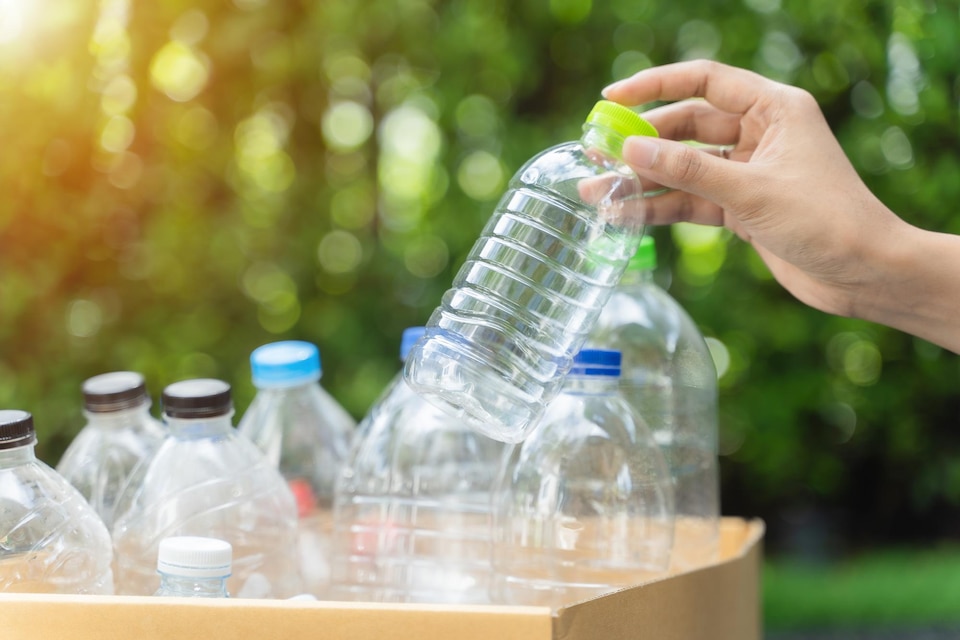
What to Watch for at Paris 2024 Olympics: Reusable Cups
In the spirit of the Olympics, it's time for us to unite and replace single-use plastics with reusable alternatives. As the 2024 Olympic Games approach, the world is excited to follow the action and witness new records being set. Fans will cheer for their home country athletes, watch sprinting events, and follow watersports. However, amid all the excitement, there's something else to watch for: reusable cups.
As a marine scientist campaigning against plastic pollution, I work to persuade the world's largest beverage companies to use more reusable packaging instead of single-use plastic. A 10% increase in reusable beverage packaging by 2030 could eliminate over one trillion single-use plastic bottles and cups, preventing up to 153 billion of these containers from polluting our waterways and oceans. Reusable packaging is the best solution the beverage industry has for addressing its role in the plastic pollution crisis. Coca-Cola and Pepsi have been named among the top plastic polluters by the Break Free From Plastic movement for six consecutive years. Thus, I was thrilled to learn that the Paris 2024 Olympic and Paralympic Games would serve beverages to spectators in reusable packaging, potentially replacing millions of single-use plastic cups.
This decision by Paris 2024 marks a significant milestone in the global fight against plastic pollution, signaling a shift towards large-scale reuse systems and away from the single-use, wasteful economy. The 2024 Games will be the largest sporting event in history to use reusable packaging, although recent reports suggest some significant flaws in the effort.
Effective reuse systems require that reusable packaging replaces single-use packaging to achieve the goal of reducing packaging waste and pollution. Unfortunately, at Paris 2024, many beverages served in reusable cups will be poured from single-use plastic bottles. Organizers cite operational restrictions in temporary venues where fountain machines cannot be installed as the reason. However, this explanation is hard to accept. Leading sponsor Coca-Cola, its partners, and event organizers should develop innovative solutions to meet demand without relying on single-use plastic.
Another key requirement is that reusable packaging should not feature attractive event branding. At Paris 2024, many reusable cups will bear the Olympic logo, making them appealing as souvenirs and reducing the likelihood of them being returned and reused. While fans may reuse these cups at home, reuse systems cannot fully minimize waste and carbon emissions without high return rates. Using unbranded reusable cups is feasible and has been successful at large-scale concerts and festivals like those by Live Nation, where the reusable cup system TURN has achieved return rates of over 90%.
Despite these flaws, the inclusion of reusable cups at Paris 2024 is a beacon of hope for the oceans. With global attention, Paris 2024 presents an unparalleled opportunity to highlight the benefits of reusable packaging and increase consumer demand for it. Earlier this month, over 100 sports organizations and elite athletes called on leading beverage companies and sports sponsors to increase reusable packaging instead of single-use plastic. A letter sent to the CEOs of Coca-Cola, PepsiCo, and Coca-Cola Europacific Partners (CCEP) urged these companies to dramatically increase reusable packaging, eliminate single-use plastic at future sporting events, and support an ambitious UN plastic treaty.
The letter delivered a powerful message against single-use plastic from the sports community, and the level of support was inspiring. Athletes clearly care about this issue, and major sports sponsors should take note. More than 50 Olympians, Paralympians, world champions, and world record holders supported the letter, including 23 athletes who will compete at Paris 2024. Over the next two weeks, I will be cheering loudly for these athletes who champion both sport and the oceans.
Plastic pollution affects us all—athletes and spectators alike. In the spirit of the Olympics, let's come together to ditch single-use plastic in favor of reuse. The future of our environment, climate, and health depends on it.